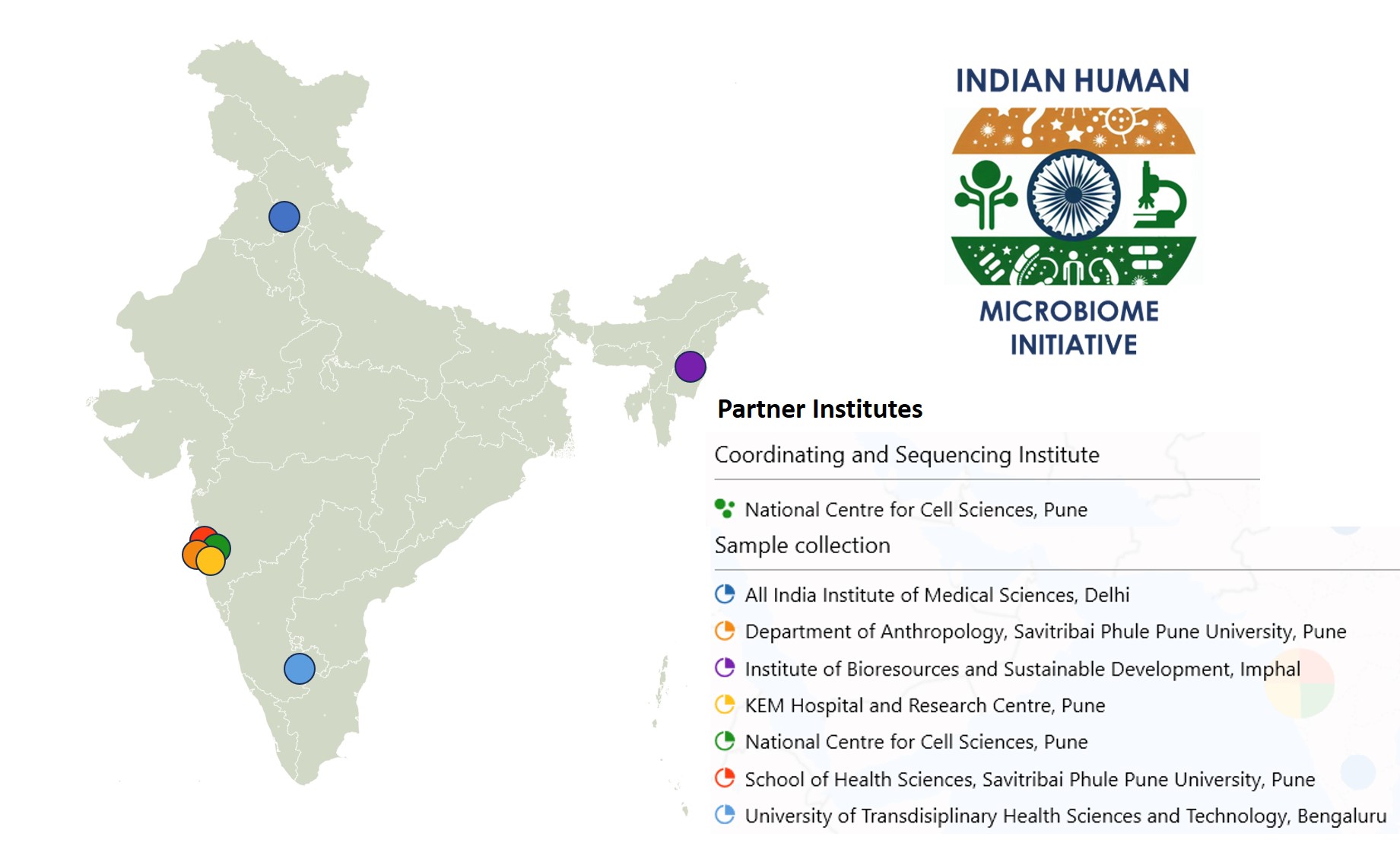Indian Human Microbiome Initiative


Research over the last decade attracted many scientists, industries and national authorities to invest in national and international projects on human microbiome research and India is not far behind. India is steadily moving from genomics to multiomics research and Human Microbiome Initiative is one such project with a target of sampling more than 3400 individuals across the country from 10 endogamous and 7 tribal communities. Comprehensive data on diet, demography, host genotype, Ayurvedic Prakriti phenotypesand correlation with bacterial, fungal, archaeal and micro eukaryotic diversity have helped to identify community-specific microbial signatures. To date, microbiome profiling for all 3400 individuals has been completed. Additionally, 657 whole metagenomes with >10 Gb data per sample have been sequenced.
Tribal communities untouched by modern lifestyle and westernization harbour the higher microbial diversity which was found to confer health benefits. Hence biobanking this diversity is imperative to understand modern lifestyle-associated diseases. Microbes preserved from tribal communities may hold the key to the development of indigenous precision probiotics. This is the first reference human microbiome from healthy individuals which will pave the way for future research on different disease models and the development of precision probiotics for Indian populations.
Significant Outcomes
1. This is the first reference human microbiome from healthy individuals which will pave the way for future research on different disease models and the development of precision probiotics for Indian populations.
2. The first comprehensive study in the world to find an association of diet, demography, and Ayurvedic Prakriti phenotypes with 4 kingdoms (bacterial, fungal, archaeal and micro eukaryotic) diversity which has helped in the identification of community-specific microbial signatures.
3. Ayurvedic Prakriti phenotypes showed significant association with gut microbiome with Pitta Prakriti individuals having significantly different microbiome.
4. In the Indian population, spices and condiments showed the highest association with gut microbiome irrespective of biogeographical variation.
5. Indian population can be subgrouped into 5 enterotypes whereas other populations across the world have demonstrated presence of only 4 enterotypes to date.
6. Biobanking of healthy gut samples will help in developing fecal microbial transplantation strategies after further characterization.
7. Preservation of more than 180 anaerobic bacteria will help in the development of indigenous precision probiotics.
Partnering Institutes

Team
| Name of the institute | Project Investigator |
|---|---|
| National Centre for Cell Science, Pune | Dr. Dhiraj Dhotre |
| All India Institute of Medical Sciences, New Delhi | Prof. Govind Makharia |
| Institute of Bioresources and Sustainable Development , Imphal | Dr. Sarangthem Indira Devi |
| KEM Hospital Research Centre, Pune | Dr. Dhiraj Agarwal |
| Department of Anthropology, Savitribai Phule Pune University, Pune | Dr. Shantanu Ozarkar |
| School of Health Sciences, Savitribai Phule Pune University, Pune | Dr. Girish Tillu |
| Institute of Trans-Disciplinary Health Sciences and Technology, Bengaluru | Dr. Subrahmanya Kumar K |
| SRM Institution for Medical Sciences, Chennai | Dr. Balakrishnan S. Ramakrishna |
